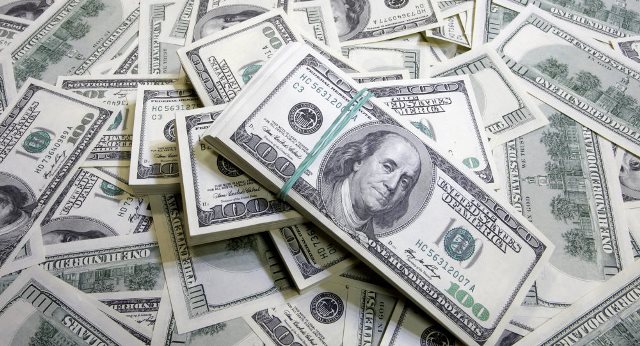On Wednesday, the dollar reached N735 on the parallel market as political campaigning began in the country. Dollar prices have risen from N718-N720 to N728-N735 in the last week, according to Bureau De Change operators in Lagos and Abuja.
Bala Usman, a BDC operator in Lagos’ Amuwo-Odofin, stated, “It is N728. I can’t go any lower.” “Dollar don cost, we are selling at N730, no more, no less,” says another operator in Zone 4, Abuja. However, the dollar rate reached N735 by Wednesday’s closure.
Mallam Zakari, a Lagos Island operator, said that the dollar rate had risen to N735 as of 4:54 p.m. “Dollar is N735 and I will pay N731 for it.” We sold N728 yesterday.” However, at the Importers and Exporters Window, the rate still hovered around N430/$. The dollar-naira exchange rate was N431.19 as of Tuesday.
Analysts said the naira had weakened in the parallel market due to increased speculations, falling external reserves, and low foreign exchange inflows.
Speaking on major factors responsible for the rate hikes in the dollar to naira, the Vice President of Lagos Chamber of Commerce and Industry, Gabriel Idahosa, said that the immediate cause of dollar rate increment was the new Monetary Policy Rate of the Central Bank of Nigeria.
“The immediate cause of the dollar price hike is the increase in the Monetary Policy Rate from 13 per cent to 15.5 per cent announced by the Central Bank.
“Lending rates by banks and other financial institutions will rise following the MPR hike. This will lead to a further rise in the cost of operations by all businesses, aggravating the rising inflation. This has triggered further demand for dollars to avoid more decline in the value of any funds held in naira.”
According to Idahosa, the commencement of elections also meant that a lot of funds had started pouring into campaign-related activities.
“Beneficiaries of these spending will be converting naira funds received to dollars as fast as possible.” Nigeria’s forex reserves stood at $38.5bn on Wednesday, which was a drop by $1.8bn from $40.5bn recorded in January 2022.
The President, of the Association of Bureaux de Change Operators of Nigeria, Alhaji Aminu Gwadabe, explained that the situation was caused by several factors, including elections, loss of confidence, and demand/ supply.
“It is a market where demand and supply determine the price. Do not forget that election years are associated with foreign exchange volatility, coupled with supply squeeze. External reserves, inflation, cost of inputs, and the Russia-Ukraine war are also key issues,” he said, arguing that there was indeed a loss of confidence.













